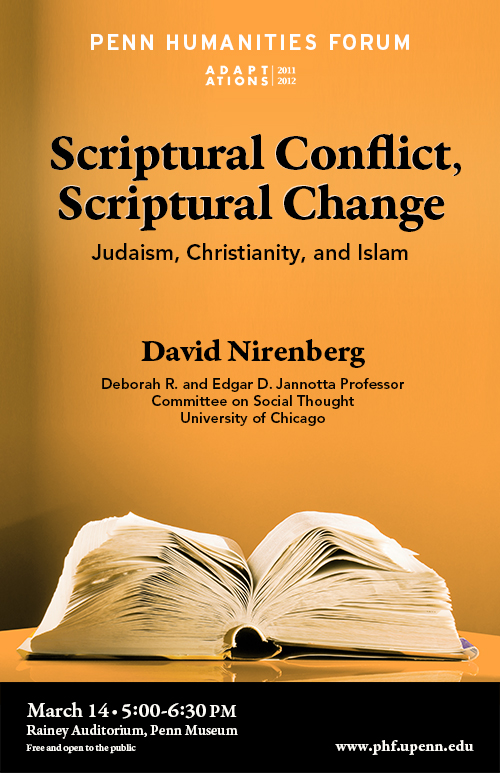Inter-religious conflict is once again at the center of the geopolitical stage. What is the role of scripture in such conflict? Do the respective claims of the Jewish, Christian, and Islamic holy texts contribute to the violence between the various communities that read them? Or do they provide a basis for solidarity between the three "Abrahamic" religions? David Nirenberg considers how the Qur'an, the New Testament, and the Torah have been read at various moments in history—including our own—in order to suggest a new approach to the scriptural politics of conflict among the "Peoples of the Book."
David Nirenberg is a historian of the medieval period; his research focuses on Muslims, Jews, and Christians in Europe and the Mediterranean. Dr. Nirenberg studies interactions among the three groups in Spain and France, and explores how “Judaism,” “Christianity,” and “Islam” figure in each other’s thought about the nature of language and the world. His first book, Communities of Violence: Persecution of Minorities in the Middle Ages (1998), has been translated into Spanish and French and has received many awards, including the American Historical Association’s Herbert Baxter Adams Prize and the Medieval Academy of America’s John Nicholas Brown Prize. Engaged in long-term thematic projects on capacious and innovative topics such as love and poison, Dr. Nirenberg’s work investigates historical imaginings of the limits and possibilities of community. A new book, The Figure of the Jew: From Ancient Egypt to the Present, is forthcoming from W. W. Norton.
Deborah R. and Edgar D. Jannotta Professor
Committee on Social Thought, University of Chicago



